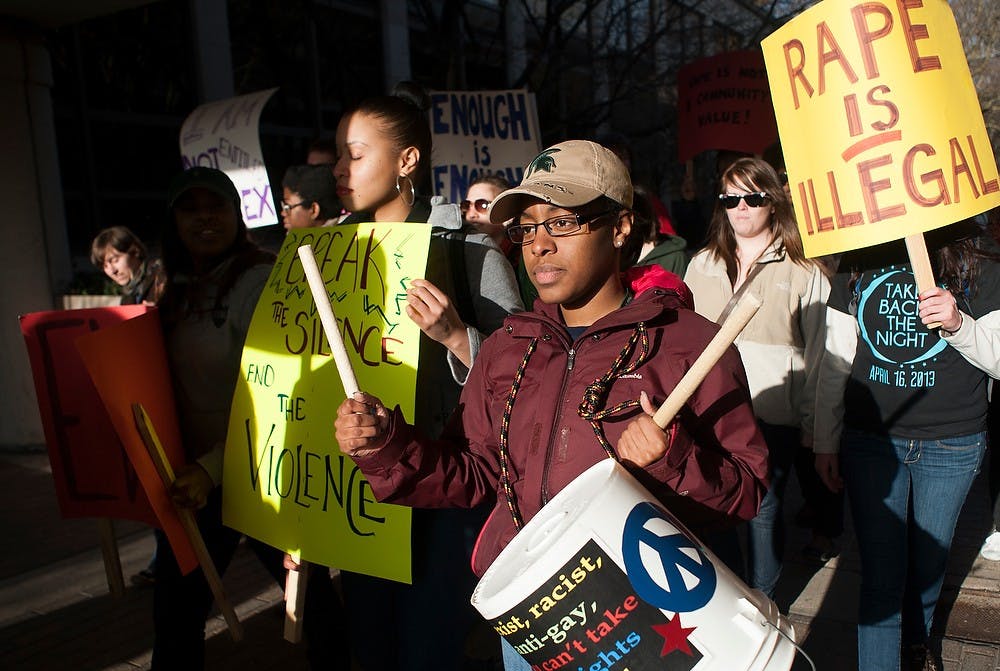When Laura Swanson hears others claim a rape isn’t real, she has a choice to make — speak or remain silent.
The choice is one many students nationwide must make when choosing how to handle their sexual assault — a choice Swanson, a psychology junior, hopes is made easier by Tuesday’s day-long Take Back the Night event.
If Swanson chooses to speak, she refers to statistics illuminating the low percentage of false reporting rather than her personal encounter with sexual assault.
Take Back the Night is an annual gathering in which participants speak out against all forms of sexual violence.
Yesterday’s event began at Beaumont Tower with the Clothesline Project, hundreds of T-shirts created by survivors and their friends and families describing their experiences with sexual
violence.
During the day, resource tables for those affected by sexual violence were staffed near the tower. In the afternoon, survivors shared their stories at SpeakOut! as some participants hugged and
cried.
Attendees turned into marchers as about 30 people walked in the evening to the Capitol in Lansing to hold a candlelight vigil in honor of survivors and those who did not survive.
Take Back the Night events have been held internationally since the movement’s inception in 1976. This was the 35th year the event has been held at MSU.
English and education senior Kari Edington, one of the event coordinators, said Take Back the Night is important for a community like MSU.
“(Take Back the Night) is an event that opens up different spaces for survivors to empower themselves and for the community to understand what sexual and relationship violence is,” Edington said.
As Take Back the Night headed toward Lansing, the marchers chanted, toted signs and drummed on plastic buckets.
“Yes means yes, no means no, whatever we wear, wherever we go,” the crowd chanted, escorted by police on motorcycles.
Edington said raising awareness and discussing these issues is important.
“There are so many taboo topics (like sexual violence) in this world that don’t get talked about,” Edington said. “Something I do every day is talk about things that don’t get talked about.”
Japanese and psychology sophomore David Fuller, a member of The Listening Ear’s sexual assault counseling committee, said the subject is not discussed enough on campus, and some men might be resistant to the conversation because they feel accused.
Jennifer Lacey, a former MSU student, said male supporters are important because they “fill in the gap by the university and other places in our culture,” she said.
Lacey left the university because her own rape became too much to bear, she said. The event was a positive step for the community because it helped dispel “victim blaming,” she said.
“It raises awareness,” Lacey said. “Hopefully there can be more people next year.”
Swanson, the other Take Back the Night coordinator, said sexual violence can be easy to overlook.
“It’s hard to spread awareness and push it into people’s faces,” Swanson said.
“Do your work to be an informed person, be an active listener. Listen, and support and believe.”
Support student media!
Please consider donating to The State News and help fund the future of journalism.
Discussion
Share and discuss “Students vow to Take Back the Night” on social media.







